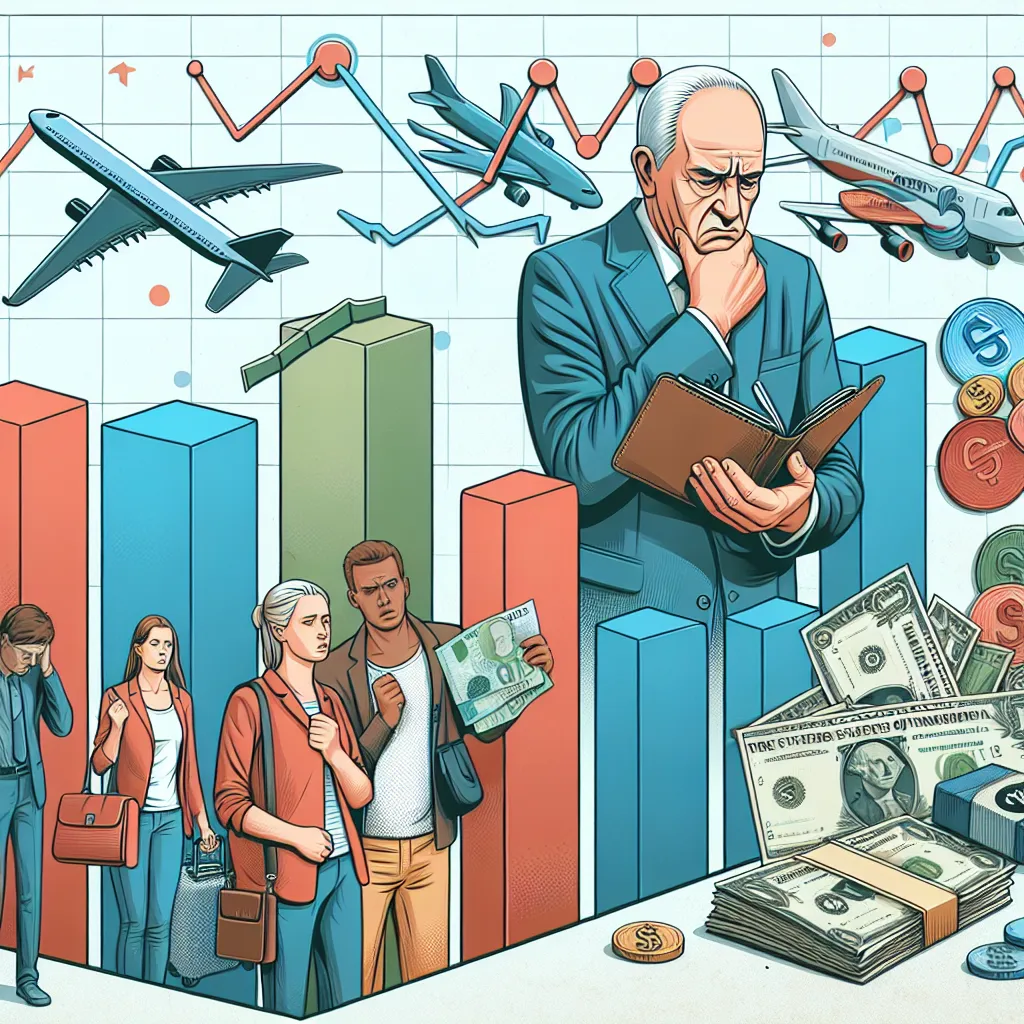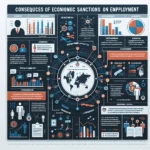Inflation is a topic that frequently appears in IELTS Writing Task 2, especially when discussing its effects on various economic sectors. The tourism industry, being a significant contributor to many countries’ economies, is often used as a context for such questions. Based on past exam trends and the current economic climate, we can expect to see more questions addressing the impact of inflation on tourism in future IELTS tests.
Let’s examine a relevant question that could appear in an IELTS Writing Task 2:
Some people believe that inflation has a negative impact on the tourism industry. To what extent do you agree or disagree with this statement?
Analyzing the Question
This question requires you to discuss your opinion on whether inflation negatively affects the tourism industry. Key points to consider:
- Understand the concept of inflation and its general economic effects
- Identify various aspects of the tourism industry that might be affected by inflation
- Consider both negative and positive impacts to form a balanced argument
- Decide on your stance: fully agree, partially agree, or disagree
Sample Essay (Band 8-9)
Inflation, the general increase in prices over time, is often perceived as a detrimental force in the economy. When it comes to the tourism industry, I largely agree that inflation can have significant negative impacts, although there may be some nuanced effects worth considering.
The primary way inflation harms tourism is by increasing costs for both service providers and travelers. As prices rise, hotels, restaurants, and transportation companies must charge more to maintain their profit margins. This inevitably leads to higher expenses for tourists, potentially discouraging travel or shortening trip durations. For instance, a family that could once afford a two-week vacation might now only manage a week due to inflated costs.
Moreover, inflation can erode the purchasing power of potential tourists in their home countries. If wages do not keep pace with inflation, individuals may find international travel becoming increasingly unaffordable, opting instead for domestic trips or forgoing vacations altogether. This reduction in demand can severely impact tourism-dependent economies, leading to job losses and economic instability in popular destination countries.
However, it’s worth noting that moderate inflation isn’t always entirely negative for tourism. In some cases, it can make certain destinations more attractive to international visitors. If a country’s currency weakens due to inflation, it may become a more affordable option for tourists from stronger currency nations. This effect can sometimes offset the reduced domestic demand, particularly for countries that rely heavily on international tourism.
Additionally, inflation can drive innovation and efficiency in the tourism sector. As costs rise, businesses are forced to streamline operations, improve services, and find creative ways to offer value to cost-conscious travelers. This can lead to a more competitive and dynamic tourism industry in the long run.
In conclusion, while inflation predominantly has a negative impact on tourism by increasing costs and potentially reducing demand, its effects are not universally detrimental. The severity of the impact largely depends on the rate of inflation, global economic conditions, and the adaptability of the tourism sector. Nonetheless, the overall challenges posed by inflation to the tourism industry are significant and should not be underestimated.
(Word count: 329)
 Impact of inflation on tourism
Impact of inflation on tourism
Sample Essay (Band 6-7)
Inflation is a big problem in many countries, and I agree that it can hurt the tourism industry in several ways. This essay will explain why I think inflation is bad for tourism.
First, inflation makes everything more expensive for tourists. When prices go up, hotels, restaurants, and tourist attractions have to charge more money. This means that people who want to travel have to spend more on their vacations. For example, a hotel room that used to cost $100 per night might now cost $150 or more. This can make some people decide not to travel at all.
Another problem is that inflation can make it harder for people to save money for trips. If the prices of everyday things like food and gas are going up, people might not have extra money to spend on vacations. This means fewer people will travel, which is bad for countries that depend on tourism for their economy.
However, inflation isn’t always completely bad for tourism. Sometimes, if a country’s money becomes less valuable because of inflation, it can actually attract more tourists from other countries. This is because their money will be worth more, making the trip cheaper for them.
In conclusion, I mostly agree that inflation hurts the tourism industry. It makes travel more expensive and can reduce the number of people who can afford to take vacations. While there might be some small benefits, overall, inflation is a big challenge for the tourism industry.
(Word count: 249)
Key Points to Remember When Writing
-
Understanding the question: Ensure you fully grasp what the question is asking. In this case, it’s about the impact of inflation on tourism, not just general effects of inflation.
-
Structure: Both essays follow a clear structure:
- Introduction with a clear thesis statement
- Body paragraphs discussing main points
- A counterargument or nuanced view
- Conclusion summarizing the main argument
-
Vocabulary: The Band 8-9 essay uses more sophisticated vocabulary and expressions, while the Band 6-7 essay uses simpler language. For example:
- Band 8-9: “erode the purchasing power”, “discouraging travel”
- Band 6-7: “makes everything more expensive”, “decide not to travel”
-
Sentence Complexity: The higher band essay uses more complex sentence structures and linking words, while the lower band essay has simpler, shorter sentences.
-
Depth of Analysis: The Band 8-9 essay provides more detailed explanations and examples, showing a deeper understanding of the topic.
Important Vocabulary to Remember
- Inflation (noun) /ɪnˈfleɪʃən/ – a general increase in prices and fall in the purchasing value of money
- Erode (verb) /ɪˈrəʊd/ – gradually destroy or diminish
- Purchasing power (noun phrase) /ˈpɜːrtʃəsɪŋ ˈpaʊər/ – the value of a currency expressed in terms of the amount of goods or services that one unit of money can buy
- Discouraging (adjective) /dɪsˈkʌrɪdʒɪŋ/ – causing someone to lose confidence or enthusiasm
- Nuanced (adjective) /ˈnjuːɑːnst/ – characterized by subtle shades of meaning or expression
- Streamline (verb) /ˈstriːmlaɪn/ – make (an organization or system) more efficient and effective by employing faster or simpler working methods
- Cost-conscious (adjective) /kɒst ˈkɒnʃəs/ – careful not to waste money
- Adaptability (noun) /əˌdæptəˈbɪləti/ – the quality of being able to adjust to new conditions
In conclusion, the impact of inflation on the tourism industry is a complex topic that requires careful consideration of various economic factors. While practicing with this essay question, consider how inflation might affect different aspects of tourism, such as transportation, accommodation, and attractions. You might also want to think about how different types of tourism (luxury vs. budget travel, for example) might be affected differently.
For further practice, try writing essays on related topics such as:
- The effects of economic recessions on international tourism
- How currency fluctuations impact travel patterns
- The role of government in supporting tourism during economic downturns
Remember to post your practice essays in the comments section for feedback and discussion. This active engagement will help you improve your writing skills and prepare effectively for the IELTS Writing Task 2.


